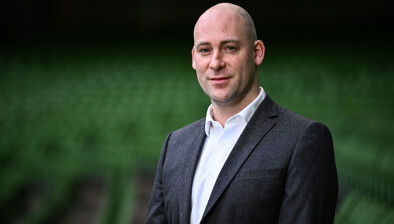Court of Appeal: Disclosure regime for expert reports contains ‘significant shortcomings’ and would ‘benefit from recalibration’

The Court of Appeal has dismissed an appeal by a defendant in medical negligence proceedings which sought to compel the plaintiff to deliver expert reports. The defendant argued that the plaintiff had not properly particularised her claims of negligence and that the expert reports were necessary for the defendant to produce its own expert evidence.

About this case:
- Citation:[2022] IECA 83
- Judgment:
- Court:Court of Appeal
- Judge:Mr Justice Seamus Noonan
Delivering judgment in the case, Mr Justice Seamus Noonan held that the defendant had failed to seek further particulars from the plaintiff and that it was impermissible to seek to do so through the disclosure process. Additionally, the court commented on the “significant shortcomings” in the disclosure regime under S.I. 391/98 and stated that it may “benefit from recalibration”.
Background
In 2018, the plaintiff issued medical negligence proceedings against several defendants arising out of the operation of the National Cervical Screening Programme. The only participating defendant to the proceedings was Clinical Pathology Laboratories Incorporated. The plaintiff alleged that a smear test was negligently analysed and was reported as normal when it was abnormal.
The personal injuries summons contained generic particulars of negligence. As such, no specific detail was provided on the defendant’s reading of the sample which constituted negligence in the case. In March 2020, CPL served a notice for particulars on the plaintiff. No particulars were sought in respect of the particulars of negligence. The plaintiff replied and reserved the right to deliver further particulars of negligence, but no further particulars were delivered.
In January 2020, CPL had stated that it needed to obtain an expert report before delivering a defence. However, a defence was subsequently delivered in February 2021 without the input of an expert. No claim was advanced that the plaintiff had not properly particularised her case.
In July 2021, the plaintiff’s solicitors indicated that they would apply to have the case listed for trial. The defendant stated that this was premature because they did not have the plaintiff’s S.I. 391/98 disclosure schedule of witnesses. The schedule was later served and contained nine witnesses.
After the matter was fixed for trial, the defendant delivered its schedule of witnesses under S.I. 391/98. CPL did not list any expert witnesses. Further, CPL requested an exchange of expert reports and offered a Harrington undertaking that the plaintiff’s reports would not be shared with the experts that they intended to instruct in the matter. In September 2021, CPL stated that it had no further reports to disclose.
Later, CPL issued a motion seeking to compel the plaintiff to disclose all reports to the defendant. The defendant argued that, where a party confirms that there are no expert reports which are required to be exchanged, the other party is required to deliver its expert reports (Order 39, Rule 46(3) RSC). The defendant also relied on the Harrington undertaking as a reason to provide disclosure.
In response, the plaintiff submitted that CPL was seeking to impermissibly assess the strengths and weaknesses of the case through the disclosure regime. Further, it was pointed out that CPL had a large number of in-house experts to assess the case.
The High Court accepted that CPL did not intend to use the disclosure for a litigious advantage but held that the Harrington undertaking would be insufficient. The court refused the application and CPL appealed to the Court of Appeal.
Court of Appeal
The court began by outlining the disclosure regime for expert reports and relevant case law. It was noted that the regime under S.I. 391/98 was brought in to bring transparency to personal injuries proceedings and to avoid trial by ambush. Further, the regime was designed to achieve and equality of arms between parties as defendants were often much better resourced than plaintiffs (see Naghten (A Minor) v Cool Running Events Limited [2021] IECA 17).
The court stated that a party could seek to compel the disclosure of expert reports under Order 39 Rule 47 and, further, that an application could be made by a party under Order 39 Rule 50 to exclude a report from disclosure where it was in the interests of justice. The court emphasised that the disclosure regime had no role to play in investigating the strengths and weaknesses of a case. It was also noted that in-house expert reports were captured by the court rules. (Galvin v Murray and Cork County Council [2001] 1 IR 331).
Next, Mr Justice Noonan considered Harrington v Cork City Council and Anor. [2015] 1 IR 1, where a defendant confirmed it did not have any reports to exchange but reserved the right to produce subsequent reports. It was held that the plaintiff was entitled to refuse to disclose their expert reports without first receiving an undertaking that the reports would not be furnished to any of the defendant’s experts. It was also held that an exchange of expert reports should be contemporaneous in order to ensure fairness to all parties.
The court noted that a Harrington undertaking could not be forced on a plaintiff. Further, a court had a wide discretion under Order 39 Rule 47 to allow a plaintiff to refuse disclosure. Further, the court stated that a “like for like” practice had developed in Irish law, where expert reports on the same topics were exchanged as they became available. The practice was pragmatic because it was exceptional for both sides to have all their experts ready at the same time, the court said.
The essential point of the disclosure regime was to avoid one side gaining a litigious advantage over the other. A party should not be required to show their hand before the other, the court said.
In the present case, the court held that CPL intended to instruct experts on liability. However, CPL had not done so because it claimed that it did not know the case it had to meet until it saw the plaintiff’s reports.
The court held that CPL’s position was contradictory. If the reports were necessary to instruct an expert, then the reports would clearly be used to inform the expert’s instructions. As such, the plaintiff’s reports would be directly or indirectly disclosed to the defendant’s experts, the court held.
Mr Justice Noonan held that it was impermissible for CPL to await the plaintiff’s expert reports rather than seek particulars of negligence in the case. The court observed that expert reports were evidence, not pleadings. The remedy for a defect in pleading was to compel particularisation in a court motion.
The court held that a Harrington undertaking would be insufficient given the defendant’s expertise in the area. This would confer a litigious advantage and undermine the disclosure regime, the court said. It was “somewhat extraordinary” that CPL had apparently not formed an intention to call witnesses until it received the plaintiff’s reports This seemed to “offend the spirit, if not the letter” of the disclosure process.
It was noted that there was the potential for abuse of the disclosure regime, such as not having to disclose the retention of an expert as long as they had not been instructed to produce a report. As such, the court commented that the regime would benefit from recalibration.
Conclusion
The court dismissed the defendant’s appeal. The court held that, if a literal application of the rules has the potential to result in injustice, the court will intervene to guarantee an equality of arms.
O’Flynn v. Health Service Executive and Ors. [2022] IECA 83










